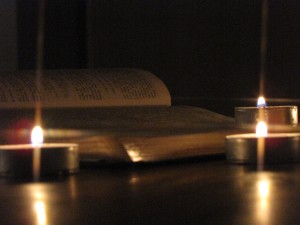To hear my blog post read aloud, just click the play button. If you’re reading this in an email, you may have to click here to hear the post on my site.
Here in the Midwest, the calendar declares it to be spring several weeks before it actually appears to be spring.
It is not unheard of to still be shoveling snow in April.
It is sometimes difficult to trust the calendar more than what my own experience is telling me.
Last year was a hard year.
Nothing major happened, simply quite a few little frustrations and disappointments.
No victories to speak of.
Perhaps you had a similar sort of year.
The sort of year when you feel as though you have made no progress toward becoming like Jesus,
the sort of year when you missed out on what you had hoped for,
the sort of year when the people around you seem to be moving away from what you dream for them.
A hard year.
A dear friend recently pointed out to me that throughout this hard year I kept showing up.
I kept trying to obey even though I thought I was failing.
And God was pleased.
I have to keep reminding myself of that. God is pleased when we keep walking with Him, even when we feel as though we are walking backwards sometimes.
God doesn’t need us to obey perfectly.
He wants our obedience more than our strength.
“I think of what the Desert Fathers said of the spiritual life. We are always beginners. We fall and we rise, we fall and we rise. (Continuing in the spiritual life) means continuing to show up for life – even when we’d rather not, even when we think we can’t.” ~ Judith Valente in Atchison Blue
This life is a struggle, and the spiritual life even more so. We must live a cruciform life in order to become like Christ.
God has promised that He will transform us into the likeness of Jesus. We can trust Him to keep that promise.
We can trust Him to keep that promise even when all that we are experiencing tells us that we are farther than ever from any resemblance to His Son,
just as we in the Midwest can trust that spring is truly here even when all that we experience tells us that winter is here to stay.
So for all who have had a hard year, just keep showing up.
We rise and we fall, we rise and we fall.
And someday we will rise never to fall again. We will be like Him for we shall see Him as He is.
He promised.
Art credits: photograph of tulips in snow by Gavin Spencer; photograph of crocuses in snow by Traute Klasser; photograph of Christ Carrying the Cross statue by Asta Kr; all other photographs copyright Made Sacred 2018.













